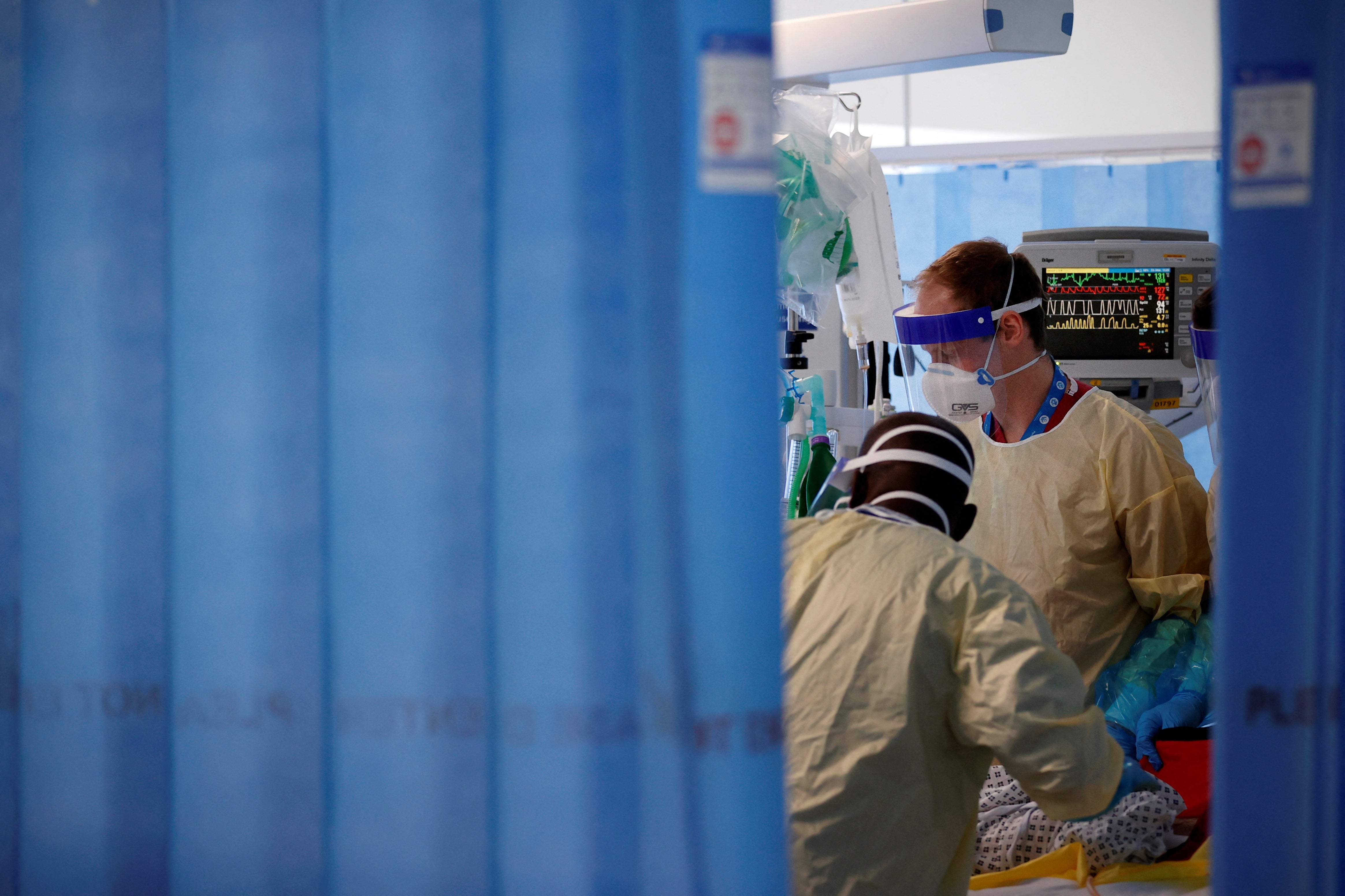Our eight-point plan to ensure the NHS gets the funding it so desperately needs
Many NHS chief executives believe the next phase of our fight against Covid-19 is likely to be the hardest yet


Your support helps us to tell the story
From reproductive rights to climate change to Big Tech, The Independent is on the ground when the story is developing. Whether it's investigating the financials of Elon Musk's pro-Trump PAC or producing our latest documentary, 'The A Word', which shines a light on the American women fighting for reproductive rights, we know how important it is to parse out the facts from the messaging.
At such a critical moment in US history, we need reporters on the ground. Your donation allows us to keep sending journalists to speak to both sides of the story.
The Independent is trusted by Americans across the entire political spectrum. And unlike many other quality news outlets, we choose not to lock Americans out of our reporting and analysis with paywalls. We believe quality journalism should be available to everyone, paid for by those who can afford it.
Your support makes all the difference.The NHS is under huge pressure at the moment. It’s going full pelt to recover the care backlogs that have built up across community, mental health and hospital services as a result of Covid-19.
It’s dealing with very high, often record levels of demand for urgent care in emergency departments and ambulance services. It’s seeing increasing levels of Covid-19 admissions into hospitals as infection rates rise.
At the same time, it’s losing significant amounts of capacity – for example, 15,000 of the NHS’s usual 100,000 hospital beds – so it can protect patients from catching Covid-19 in NHS settings.
It has large numbers of staff currently self-isolating. There’s a worrying increase in the number of staff off sick with stress or other mental health related conditions. One trust told NHS Providers last week that half of its current staff absences fit into this category. And the NHS is now hitting the peak summer leave period, with lots of extra time off held over from earlier waves of Covid-19 when staff barely took a day off.
These last two issues are, of course, strongly related. Trust leaders are adamant that staff must now take their delayed leave to protect their health and avoid burnout.
This is a very worrying combination of pressures. Local NHS chief executives are telling us that, although the shape is very different – fewer Covid-19 cases and more staff absences – the overall level of pressure is now much the same as it was in January. That was rightly described as the most difficult period for the NHS in a generation.
What’s also worrying trust chief executives is that these pressures will continue and are likely to grow. The number of Covid-19 patients in hospital is clearly going to rise, with ministers predicting 100,000 new infections a day and a peak at the end of August.
The NHS has to deliver a complex next phase of the vaccination campaign this autumn, combining jabs for vulnerable children, younger adults and booster shots alongside a much bigger flu vaccination programme than usual.
And then the service will face what the chief medical and scientific officers are already predicting will be one of the most difficult winters in NHS history with, most likely, more Covid-19 and much more flu than last year.
It is the task of NHS leaders to juggle these competing priorities and provide the best possible care to the greatest number of people. But they need maximum support from the government. And they’re worried that, as the NHS budget is set for the second half of the year, that support won’t arrive.
The government is stressing the need to restore public finances. But the NHS can’t meet the pressures it faces without the right funding. Our NHS Providers letter today, to the prime minister, the chancellor, the health secretary and the chief executive of NHS England, sets out what’s needed:
- Continuation of the discharge funding that’s been so successful over the last 18 months in enabling the NHS and social care to keep patients flowing;
- Avoiding the tens of thousands of discharge delays we used to see;
- Replenishing the funding to treat elective surgery backlogs where trusts are recovering activity so fast they’ve already used up most of the £1bn allocated for this task this year;
- An emergency round of precious capital funding, similar to the £450m the NHS received last year, to enable trusts to speed up backlog recovery and expand their emergency departments, crisis mental health services, and community and ambulance capacity in time for winter;
- Full funding of the government’s recently announced 3 per cent pay award so trusts don’t have to cut patient care to give hardworking NHS frontline staff the pay rise, and recognition, they obviously deserve;
- Helping trusts speed up recovery by funding the use of all possible available capacity, including the independent sector, as happened in earlier phases of Covid-19;
- Recognising trusts are not ready, at this point, to resume delivery of the record level of efficiency savings they were making before Covid-19, given the other pressures they face;
- And no repeat of the distraction and uncertainty from the beginning of the year when trusts were only informed of their budgets 13 days before the year started.
The NHS has delivered in an extraordinary way over the last 18 months, often at the drop of a hat. Thirty-four thousand beds to treat Covid-19 patients. A best-in-class vaccination campaign. World-leading Covid-19 treatments like remdesivir and dexamethasone.
Many NHS chief executives believe the next phase of our fight against Covid-19 is likely to be the hardest yet given the scale and breadth of pressures they face. They are clear that, now more than ever, the NHS must get the funding it needs to win that fight.
Chris Hopson is CEO of NHS Providers
To find out what others are saying and join the conversation, scroll down for the comments section or click here for our most commented on articles
Join our commenting forum
Join thought-provoking conversations, follow other Independent readers and see their replies
Comments